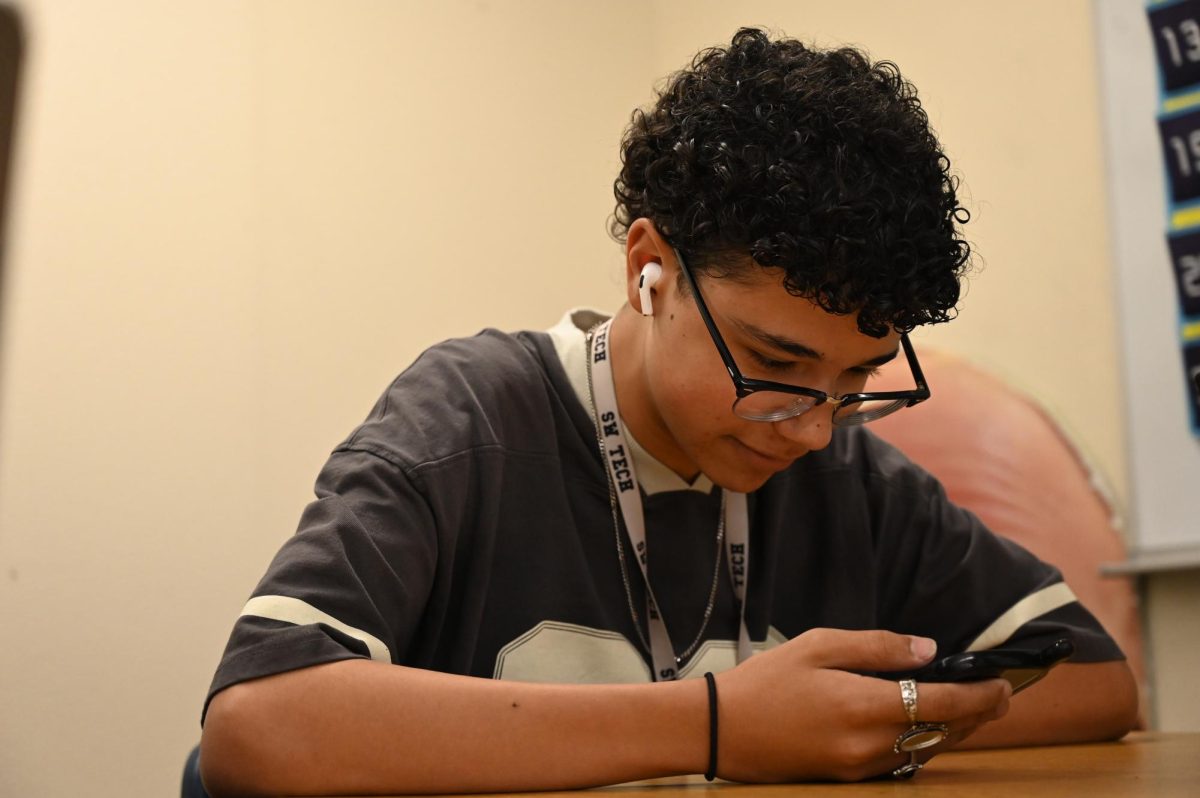It’s the standard for high school students to assume that college is the next step after graduating, but in reality, attending higher education is a major decision that needs to be carefully considered.
Many students make the mistake of rushing into college without fully understanding all the options available to them. According to statistics provided by the Education Data Initiative, during fall of 2021 and 2022, 28.9 percent of first-time, full-time college freshmen dropped out of their majors nationwide. In addition to this, the amount of college dropouts in Nevada has increased 3.1 percent as of 2023, with an end total of 383,036 dropouts.
Though college seems to be the obvious choice for many when they are completing their junior year, taking more time to think things over could save lots of money and stress in the long run. Even with set plans on attending college, it’s important to understand that there are many worthwhile alternatives to going into college immediately.
Although a worthwhile option, there are many different opportunities in the workforce beyond finding a local job and working your way up straight out of high school. Many students who choose their career over college have considered pursuing paths that don’t require a college education and fit closely to their interests, like senior Owen Sherrick.
“I got a good career offer recently to help build stages for concerts and venues,” senior Owen Sherrick said. “College also doesn’t sound that appealing to me. I almost feel like I’d be stupid not to take that choice and go to college instead.”
Other students seeking work, even if only temporarily, can find other alternatives such as entrepreneurship or freelance work, which make a considerable amount of money without the need of a degree. In fact, more opportunities are on the horizon for graduates as a large percentage of companies are reporting their plans to remove the requirement for a college degree.
In a study conducted by Intelligent, researchers found that 45 percent of companies have plans to eliminate the bachelor’s degree requirements for some positions in 2024, while 55 percent of companies already had in 2023. The shift in priority made by these major corporations have impacted the decision making process for students like senior Kadar Stewart.
“I do [want to go to college], but I also don’t,” Stewart said. “For me, it’s more for the experience, but at the same time, there’s a lot going on in the world. You don’t even need a bachelor’s degree to get most jobs. By the time you complete college for the job you wanted, it didn’t even require you to have a degree in the first place. You just wasted those years of your life.”
College Attendance Statistics by Achilles Andre Caranto
Looking beyond immediately joining the workplace, graduates can also seek alternative education, which provides many cheaper and less stressful options that can still help with profitable careers.
Recent studies conducted by the Bill and Melinda Gates foundation saw a gradual decline in immediate college enrollment, finding that students saw success in other paths, with 47 percent pursuing online education, 25 percent seeking to obtain licenses, and 22 percent seeking certifications.
Another form of alternative education comes from vocational training programs, which allow students to begin working at a profitable salary after only a few months of training, with some career possibilities, including becoming EMTs, wind turbine technicians, commercial drivers, or bricklayers. Besides these programs, students could also work to earn a license for a career as a realtor or a marriage officiant, which are both lucrative options despite not requiring college experience.
“It depends on the student and what their goals are,” counselor Janelle Kelly said. “If they are set on one specific career field, a trade school might be exactly what they need. They need to know themselves and what they want to do to decide on what kind of school to go to. You’re not taking traditional courses like English and Math. You’re doing specifically what you need for that job.”
However, students who are insistent on going to college can still benefit from working toward other paths, even for brief periods. For these students, especially those who seek a more expensive education, a short experience with the military after high school could be a viable option.
“I will [attend college] but not as soon as I come out of high school,” senior Ilani Miron said. “The military offers a lot of really good benefits and not just that, but schooling requires money. The army is a great option to pay for that. The army would also be a good option to go in, as it would just help me develop my character and discipline.”
For those that are wanting a more traditional education, but would still like to save money, studying at a community college temporarily, then studying at a college of their choice is an option. Work experience programs at colleges are another option which provides an education identical to that of an average four-year college, with a significantly reduced or eliminated tuition for students that work jobs on campus as a part of their educational experience.
With graduation impending for seniors, a large amount of graduating seniors still are undecided about their plans after college. Even with the options previously mentioned, there still remain countless alternatives and paths that can be explored, which could include college.
Before making any drastic decisions, students should conduct their own research and talk to ambassadors, counselors, college students, alumni and other working adults for further insight. Students who are currently undecided don’t have to figure out what they want in life, but they also don’t have to go to college.
“Go with your heart,” substitute teacher Dylan Drachler said. “Don’t let the outside noise influence what passions you want to pursue throughout your life.”



![Displaying a QR code for students to scan, the flyer allows students to sign up and learn about their desired colleges as they visit throughout the school year. Many schools have had additional presentations for students to learn more about what they offer. “For me, I’m interested in criminal justice,” junior Zion Jefferson said. “I know that UNLV and Nevada State University have this major. But, [the college fair] is going to be beneficial, so I can see what other schools offer as well.”](https://southwestshadow.com/wp-content/uploads/2025/10/IMG_2721-1200x900.jpg)

![Fast food has not stayed the same principle of “sit down, order, and get food,” but has turned into a process with multiple layers and complexity. This is largely due to the integration of automation in every aspect of dining. “I'm not that knowledgeable on it, but I've seen videos on TikTok, I'm not really concerned—it doesn’t seem that smart,” senior Dallas Evertt said. “When [some people are just ordering] 18,000 water cups, it sounds really dumb. There was no way [the AI] was gonna put down 18,000 water cups—and that just shows how it’s not going to take anybody’s job soon.”](https://southwestshadow.com/wp-content/uploads/2025/10/Dominante-Image-1200x675.png)

![Squaring up to a practice dummy, sophomore Cypher Andres prepares to throw a punch. Dummies are regularly used to help him prepare certain hits to take his opponents down. “[Boxing dummies help me practice] because it’s basically a model of the body,” Andres said. “It helps with accuracy, such as pressure points behind the ear, and a clean liver shot can end the fight.”](https://southwestshadow.com/wp-content/uploads/2025/10/IMG_5728-e1759850486200-1200x864.jpg)
![Swaying and preparing to toss the tennis ball, Dylan Grove practices serving. Grove had been training in preparation for her upcoming matches against Chaparral and Doral Red Rock. “[Both teams are] both very tough opponents, but I am ready for whatever gets thrown my way,” Grove said.](https://southwestshadow.com/wp-content/uploads/2025/10/image-1200x900.png)



